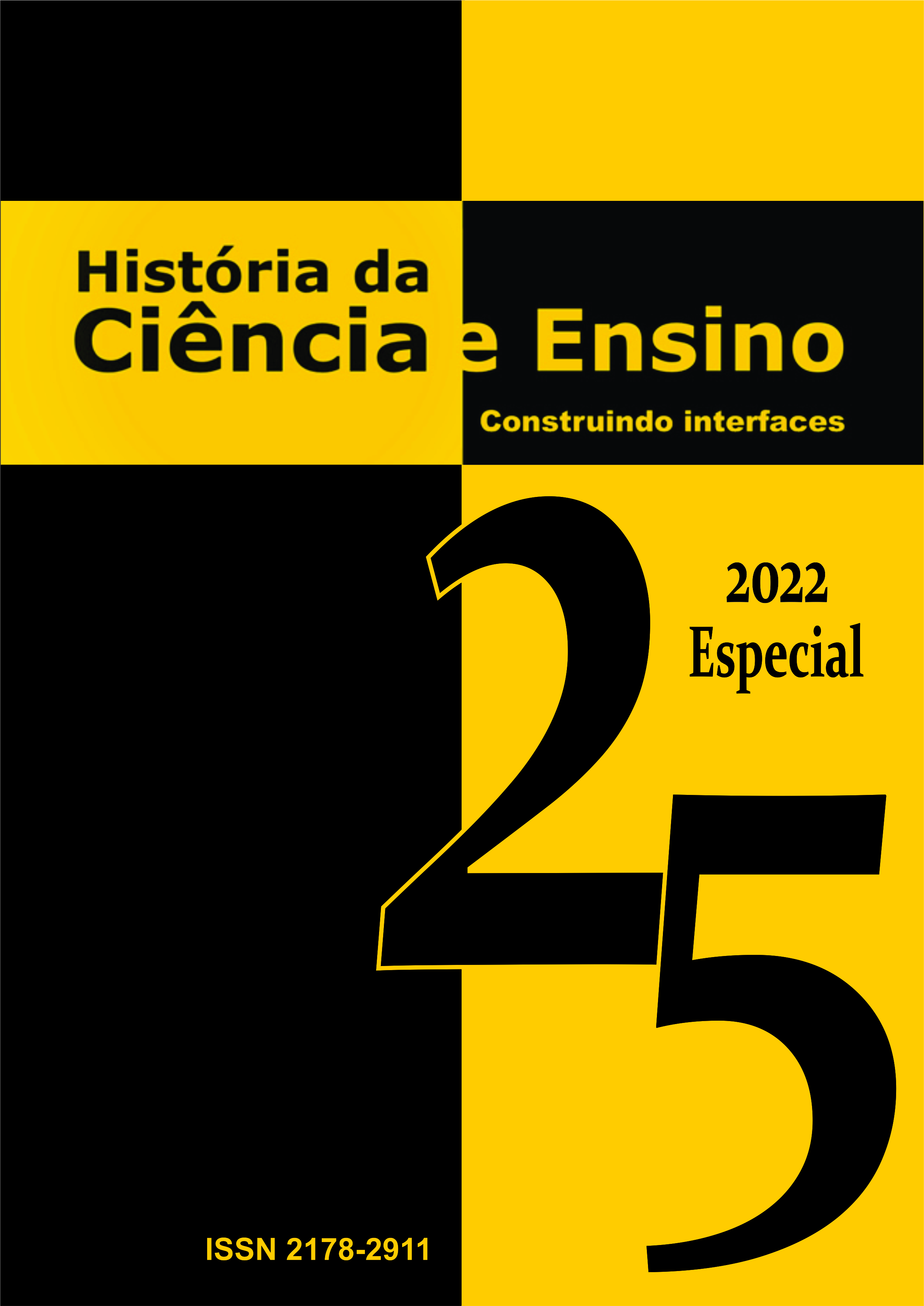Estratégias para o Ensino de Química: a História da Química num minicurso para os bolsistas do PIBID
História da Química num minicurso para os bolsistas do PIBID
DOI:
https://doi.org/10.23925/2178-2911.2022v25p154-164Resumo
Resumo
Neste artigo, apresentamos os resultados de uma investigação sobre o ensino-aprendizagem de ciências por meio de um minicurso sobre a história da química, por algumas semanas durante a pandemia da COVID-19. A estratégia de ensino foi realizada junto aos bolsistas PIBID dos cursos de Licenciatura dupla em Ciências Química e Biologia da Universidade Federal do Amazonas (UFAM) e do curso em Licenciatura em Química do Instituto Federal Catarinense (IFC), fruto da parceria entre ambas as instituições de ensino ao longo da pandemia. A terceira instituição que também esteve presente nessa parceria remota foi a Universidade do Estado do Rio de Janeiro (UERJ), contribuindo com as aulas remotas para ambos os grupos do PIBID dos cursos de Licenciatura da UFAM e do IFC. Os dados foram coletados por meio de um questionário com perguntas abertas e os resultados indicaram que a intervenção didática, com uma abordagem contextualizada da ciência química, os estudantes puderam compreender e assimilar melhor os muitos episódios controversos no desenvolvimento e construção das hipóteses e teorias que fundamentam a ciência básica.
Palavras-chave: história da química, estratégias de ensino, PIBID, aulas remotas, metodologias ativas de ensino.
Abstract
In this paper, we introduced the results of an investigation about science’ teaching and learning through a brief course on the chemistry’history, for a few weeks during the COVID-19 pandemic. The teaching strategy was carried out with scholarship holders' PIBID of the dual degree in chemical and biology’ science licentiate course at the Amazonas Federal University (UFAM) and chemistry’degree licentiate at the Catarinense Institute Federal (IFC), a working partnership between both institutions education during pandemic. The third institution that was also present in this remote partnership was the University of the State of Rio de Janeiro (UERJ), contributing with remote classes for both PIBID groups of the UFAM and IFC Degree courses. The results were collected according by an open questions' questionnaire and indicated that the didactic intervention, with a contextualized approach to chemical science, the students could better understand and assimilate the many controversial episodes in the development and construction of the hypotheses and theories that fundamentals of the basic science.
Keywords: chemistry’ history, teaching strategies, PIBID, remote classes, active teaching methodologies.


